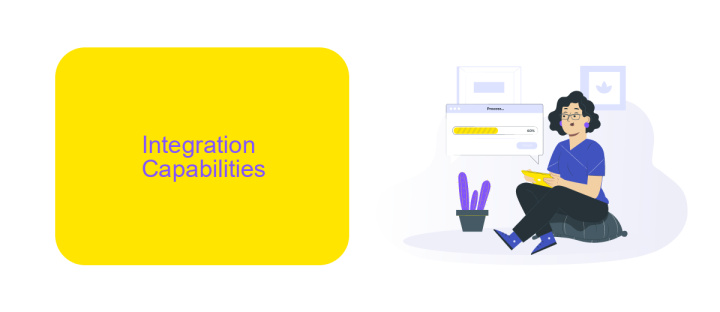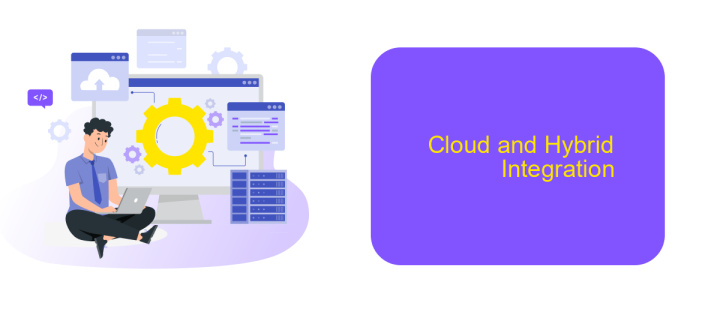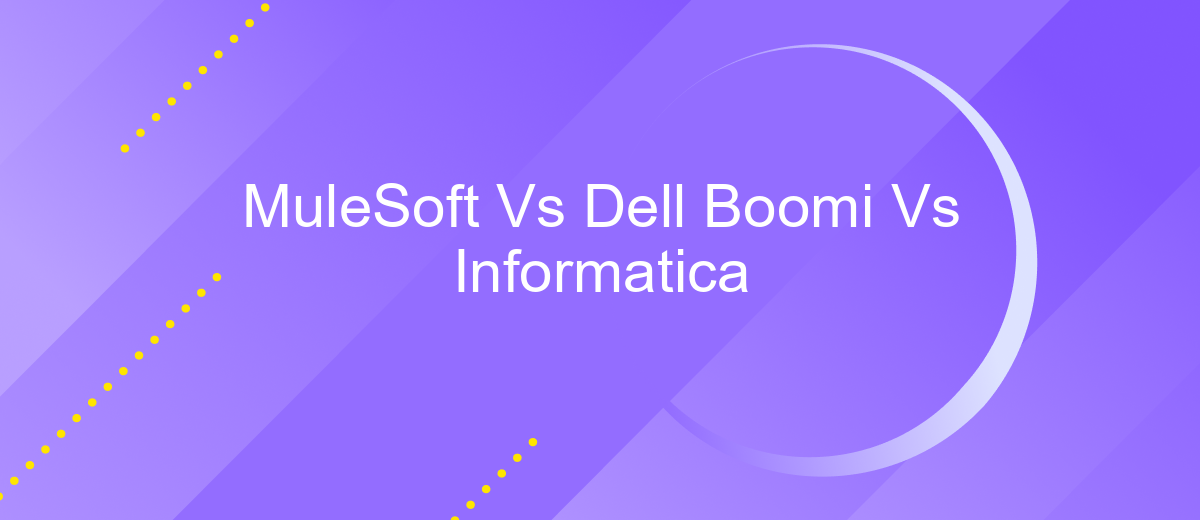MuleSoft Vs Dell Boomi Vs Informatica
In today's rapidly evolving digital landscape, businesses require robust integration platforms to streamline processes and enhance connectivity. This article delves into a comparative analysis of three leading integration solutions: MuleSoft, Dell Boomi, and Informatica. By examining their features, capabilities, and unique strengths, we aim to provide insights that will help organizations make informed decisions on the best platform for their specific needs.
Product Overview
MuleSoft, Dell Boomi, and Informatica are leading platforms in the integration space, each offering unique capabilities to streamline data connectivity. MuleSoft's Anypoint Platform provides a robust suite of tools for API management, data integration, and analytics, making it a versatile choice for complex enterprise environments.
- MuleSoft: Known for its API-led connectivity, MuleSoft excels in creating seamless integrations across various applications.
- Dell Boomi: Boomi's low-code platform simplifies the integration process, making it accessible for both technical and non-technical users.
- Informatica: Informatica offers comprehensive data management solutions, with a strong focus on data quality and governance.
For businesses looking to further simplify their integration processes, services like ApiX-Drive can be invaluable. ApiX-Drive automates the data flow between different applications, reducing the need for manual intervention and ensuring real-time data synchronization. This makes it an excellent complement to the capabilities offered by MuleSoft, Dell Boomi, and Informatica.
Integration Capabilities

MuleSoft offers robust integration capabilities through its Anypoint Platform, enabling seamless connectivity across various systems, applications, and data sources. It provides a unified solution for API management, design, and deployment, facilitating efficient data integration and real-time analytics. MuleSoft's pre-built connectors and templates accelerate the integration process, reducing development time and effort.
Dell Boomi stands out with its cloud-native integration platform, Boomi AtomSphere, which supports a wide range of integration scenarios, including application, data, and B2B integrations. Its low-code interface and extensive library of pre-built connectors simplify the integration process, making it accessible to both technical and non-technical users. The platform's flexibility and scalability make it suitable for enterprises of all sizes.
Informatica provides comprehensive integration capabilities through its Intelligent Data Management Cloud (IDMC), offering tools for data integration, data quality, and data governance. Its AI-driven approach enhances data discovery and management, ensuring high-quality, trusted data across the organization. Informatica's extensive connectivity options and automation features streamline complex integration workflows, improving operational efficiency.
Data Management

Data management is a critical component in modern enterprises, ensuring that data is accurate, accessible, and secure. MuleSoft, Dell Boomi, and Informatica offer robust data management solutions, each with unique features tailored to different business needs.
- MuleSoft: Known for its API-led connectivity, MuleSoft facilitates seamless data integration across various applications and systems.
- Dell Boomi: Offers a cloud-native integration platform that supports real-time data integration and ensures data consistency across different environments.
- Informatica: Provides comprehensive data management tools, including data quality, data governance, and master data management, making it ideal for large-scale enterprises.
For businesses seeking to streamline their data integration processes, services like ApiX-Drive can be invaluable. ApiX-Drive offers an easy-to-use platform for automating data transfers between various applications, enhancing overall data management efficiency. By leveraging such tools, organizations can ensure that their data remains synchronized and up-to-date, thereby driving better decision-making and operational efficiency.
Cloud and Hybrid Integration

Cloud and hybrid integration have become essential for modern enterprises looking to streamline their operations and enhance connectivity. MuleSoft, Dell Boomi, and Informatica are leading platforms that offer robust solutions for integrating cloud and on-premise applications, enabling businesses to achieve seamless data flow across various systems.
Each of these platforms provides unique features and capabilities tailored to different integration needs. MuleSoft is known for its API-led connectivity approach, which facilitates scalable and reusable integrations. Dell Boomi offers a low-code platform that simplifies the integration process, making it accessible even to non-technical users. Informatica excels in data management and governance, ensuring data quality and compliance across the integration landscape.
- MuleSoft: API-led connectivity, reusable integrations, scalable solutions.
- Dell Boomi: Low-code platform, user-friendly interface, rapid deployment.
- Informatica: Data management, compliance, data quality assurance.
Additionally, tools like ApiX-Drive can complement these platforms by offering pre-built connectors and automation features, further simplifying the integration process. This allows businesses to focus on their core operations while ensuring that their systems are well-integrated and data flows smoothly across all platforms.
Pricing and Support
When comparing MuleSoft, Dell Boomi, and Informatica in terms of pricing, each platform offers a unique structure tailored to different business needs. MuleSoft operates on a subscription-based model, with pricing tiers based on the number of users and the scale of integration projects. Dell Boomi also adopts a subscription model but focuses on the number of integrations and data volume. Informatica, on the other hand, provides a more customized pricing approach, often requiring direct consultation to determine the cost based on specific business requirements. For businesses looking to streamline their integration processes, services like ApiX-Drive can offer additional support and cost-effective solutions.
Support options vary significantly among these platforms. MuleSoft provides comprehensive support packages, including 24/7 assistance and dedicated account managers for higher-tier subscriptions. Dell Boomi offers tiered support plans, ranging from basic to premium, with options for dedicated support engineers. Informatica stands out with its extensive support ecosystem, offering everything from community forums to personalized consulting services. Additionally, ApiX-Drive can complement these platforms by offering robust support for setting up and managing integrations, ensuring businesses can maximize their investment in any of these integration solutions.
FAQ
What are the main differences between MuleSoft, Dell Boomi, and Informatica?
Which platform is best for cloud integration?
How do these platforms handle API management?
What are the licensing and cost considerations for each platform?
Can I use third-party services to assist with integration and automation?
Time is the most valuable resource in today's business realities. By eliminating the routine from work processes, you will get more opportunities to implement the most daring plans and ideas. Choose – you can continue to waste time, money and nerves on inefficient solutions, or you can use ApiX-Drive, automating work processes and achieving results with minimal investment of money, effort and human resources.

